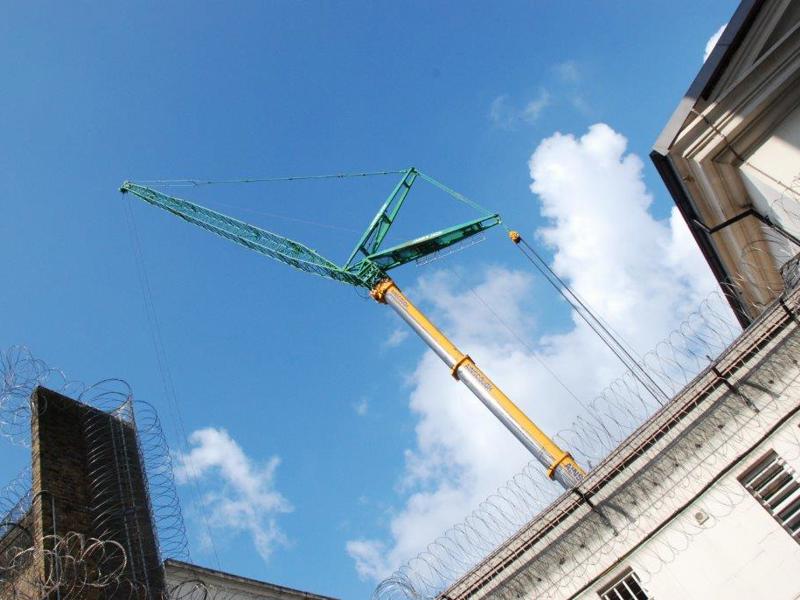Leading provider of critical infrastructure for local and national Government, Amey, has successfully completed a project to upgrade the digital court facilities at HMP Pentonville.
The project was delivered as part of the MOJ and HM Courts & Tribunals Service (HMCTS) strategy to help reduce unnecessary court attendance.
The solution provided by Amey will result in cost efficiencies across the service and a reduction in the risk associated with the transportation of prisoners – both in relation to COVID 19 and associated disturbance.
The Amey Secure Infrastructure project team worked together with the MOJ major project team and staff at HMP Pentonville to develop a robust project management framework and plan.
Due to the prison environment's secure nature, a modular construction solution was selected, allowing the build to occur off-site. This solution reduced the project timeframe, cost and environmental impact while minimised disruption to custodial services.
Amey supply chain partner Ellison AC completed the off-site assembly of the two-storey modular digital court facility in a single location and foundation groundworks were undertaken by partner PMA at the prison to prepare the site for delivery.
Once assembled, the modular digital court facility was delivered to HMP Pentonville and lifted into place by a 530-ton crane from outside the prison walls onto the pre-prepared foundation located within a courtyard area of the prison.
Key facts:
• State of the art video court facilities to support MOJ and HMCTS digital strategy
• Facility can be transportable to other locations if needed
• Single site modular construction and local workforce minimised carbon footprint throughout the process due to reduction in travel
• Energy cost saving through LED lighting solutions
• Minimal operational impact to custodial services and security
• Reduction in overall project time by up to 50%
• Zero work time accidents and security incidents
Geoff McManus, Account Director – Projects, Amey Secure Infrastructure
“We are delighted to have successfully delivered this project on behalf of the MOJ. The use of offsite and modular construction methods are being increasingly used in our industry as a more sustainable option to traditional builds. They not only significantly shorten the build time and allow the facility to be used quicker. In comparison to traditional build projects, they have a real opportunity to make a positive difference to climate change with the fabrication under factory conditions reducing waste, improving quality and reducing unnecessary travel to and from the site.”
